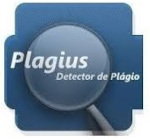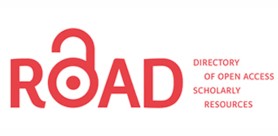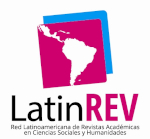THE REMOTE TEACHING EVENT: valorative perceptions of CERES’ Professors
DOI:
https://doi.org/10.47180/omij.v2i3.150Keywords:
CERES’ professors, Perceptions, Remote teaching, UFRNAbstract
The pandemic caused by SARS-CoV-2 (COVID-19) virus made the teaching institutions to adopt new connections and other postures in the teaching-learning process, what configured a temporary change in the alternative teaching model. In the specific case of Universidade Federal do Rio Grande do Norte (UFRN), in the surch for means/strategies to try to deal with teaching-learning loss, it was adopted the remote teaching, with synchronous and asychronous classes. Therefore, it will be analyzed the advantages, disadvantages and professors’ valorizations of the Centro de Ensino Superior do Seridó (CERES/UFRN) about the remote teaching. This research is of qualitative and interpretative approaches, in view of the comprehension and the explanation of data in their macro and microssocial contexto. As production data instrument, it will be used online questionnaries with opened-closed questions, in order to reach a representative number of collaborator professors. The results show some advantages besides different appreciations about remote teaching. The advantages presented take in account the lived reality by the professor, that is, they are points of view that consider their conditions of life. In the case of the disadvantages, on the contrary of the advantages, are perceived not in the perception of professors, but in the place of students, for, in what seems, the professors consider the reality expirienced by the students. In addition, the professors, in evaluating the remote teaching, considering the more general reality, that envolves socioeconomic, institucional and interactional aspects as well as that related to learning.
Downloads
References
AMORIM, M. Para uma filosofia do ato: “válido e inserido no contexto”. In: BRAIT, Beth (Org.). Bakhtin, dialogismo e polifonia. São Paulo: Contexto, 2009, p. 17-44.
BAKHTIN, M. M. Para uma filosofia do ato responsável. Tradução de Valdemir Miotello; Carlos Alberto Faraco. São Carlos: Pedro & João Editores, 2010, 155p.
BAKHTIN, M. M. Os gêneros do discurso. 1. ed. Organização, tradução, posfácio e notas de Paulo Bezerra; notas da edição russa de Serguei Botcharov. São Paulo: Editora 34, 2016.
HODGES, C; TRUST, T; MOORE, S; BOND, A; LOCKEE, B. Diferenças entre o aprendizado online e o ensino remoto de emergência. Revista da Escola, Professor, Educação Tecnologia, v. 2, 2020. Disponível em: https://escribo.com/revista/index.php/escola/article/view/17/16. Acesso em: 25 maio 2021.
MEDVIÉDEV, P. N. O método formal nos estudos literários: introdução crítica a uma poética sociológica. 1. ed. Tradução de Sheila Camargo Grillo; Ekaterina Vólkova Américo. São Paulo: Contexto, 2016.
PONZIO, Augusto. A concepção bakhtiniana do ato como dar um passo. In: BAKHTIN, M. M. Para uma filosofia do ato responsável. Tradução de Valdemir Miotello e Carlos Alberto Faraco. São Carlos: Pedro & João Editores, 2010, p. 9-40.
VOLOCHÍNOV, V. N. A construção da Enunciação e Outros ensaios. Organização, Tradução e Notas de João Wanderley Geraldi. São Carlos: Pedro & João Editores, 2013.
VOLOCHÍNOV, V. N. A palavra e suas funções sociais (1930). In: _____. A construção da Enunciação e Outros ensaios. Organização, Tradução e Notas de João Wanderley Geraldi. São Carlos: Pedro & João Editores, 2013a, p. 189-212.
VOLOCHÍNOV, V. N. O que é linguagem (1930). In: _____. A construção da Enunciação e Outros ensaios. Organização, Tradução e notas de João Wanderley Geraldi. São Carlos: Pedro & João Editores, 2013b, p. 131-156.
VOLOCHÍNOV, V. N. A construção da enunciação (1930). In: _____. A construção da Enunciação e Outros ensaios. Organização, Tradução e notas de João Wanderley Geraldi. São Carlos: Pedro & João Editores, 2013c, p.157-188.
Downloads
Published
How to Cite
Issue
Section
License
Copyright (c) 2021 Open Minds International Journal

This work is licensed under a Creative Commons Attribution-NonCommercial-NoDerivatives 4.0 International License.
The authors declare that any work submitted, if accepted, will not be published elsewhere, in English or in any other language, and even electronically, unless it expressly mentions that the work was originally published in the Journal.













